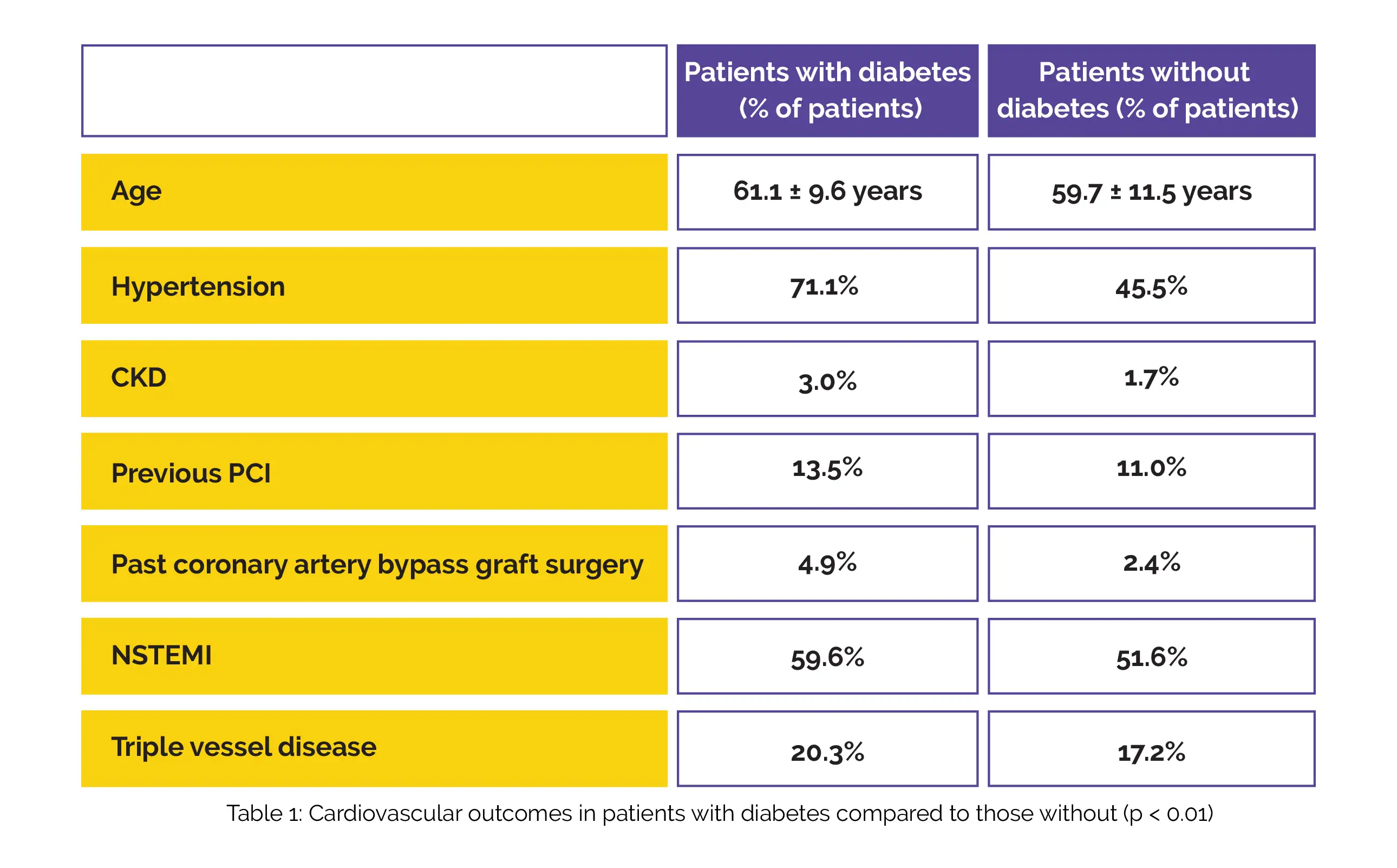Categories
Change Password!
Reset Password!


This study was carried out to find out the changes in coronary artery disease (CAD) clinical presentation, different interventions, and outcomes at the follow-up in patients with diabetes compared to those without diabetes.
Coronary artery disease patients with diabetes undergoing PCI are more likely to experience elevated blood pressure and additional serious cardiovascular concerns.
This study was carried out to find out the changes in coronary artery disease (CAD) clinical presentation, different interventions, and outcomes at the follow-up in patients with diabetes compared to those without diabetes.
In this single-centre prospective study, patients with mainly acute coronary syndrome (ACS) who had percutaneous coronary intervention (PCI) were registered. Personal interviews and on telephone follow-ups were performed in diabetic patients versus those without diabetes to resolve the differences in clinical and angiographic characteristics and outcomes.
The key endpoint was mortality due to cardiovascular concerns. Co-primary outcomes were the major adverse cardiovascular events (cardiovascular mortality, heart attack, revascularization procedure, stroke). A calculation of Cox-proportional hazard ratios (HR) along with 95% confidence intervals was done.
This study enrolled 5181 patients (4139 men and 1042 women). Out of these patients, ACS was present in 94.9% of the patients (4917 in number) and diabetes was in 38.4% of the patients (1987 in number).
Individuals with diabetes were older, with greater hypertension, triple vessel disease, chronic kidney disease (CKD), previous PCI, previous coronary artery bypass graft surgery, and non-ST-elevation myocardial infarction (NSTEMI), as mentioned in the following Table 1:

Also, the length of hospitalization was more in diabetic patients (4.2 ± 2.6 versus 4.0 ± 2.1 days) with no variations in in-hospital deaths (1.4 vs 1.0%). Follow-up was carried out in 1202 people (out of which 41.5% were diabetic). There were significantly more cardiovascular deaths (multivariate-adjusted HR 2.38) and all-cause deaths (HR 1.85) in diabetic patients.
Coronary artery disease patients who have diabetes are more likely to have high blood pressure, chronic renal disease, triple vessel disease, and NSTEMI. At the medium-term follow-up (16 months), the occurrence of cardiovascular and all-cause mortality is considerably more in these people.
Diabetes & Metabolic Syndrome: Clinical Research & Reviews
Association of type 2 diabetes with coronary risk factors, clinical presentation, angiography, coronary interventions and follow-up outcomes: A single centre prospective registry
Rajeev Gupta et al.
Comments (0)